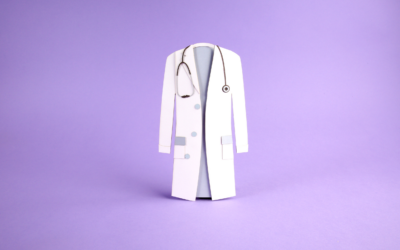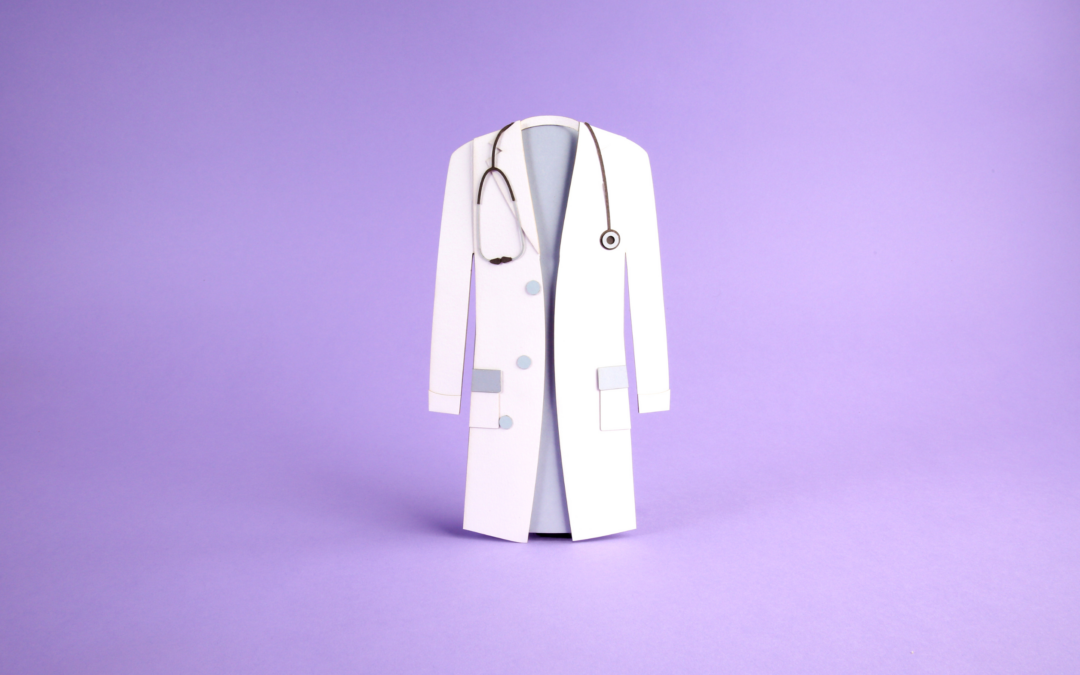As one of the most metabolically active parts of our body, our hair follicles can be a good indication of what’s going on inside us.
Our follicles need nutrients to thrive and produce healthy hair. Deprive them of some of these nutrients and the deficiency may lead to weak or thinning hair.
The ‘hair supplements’ you find on supermarket shelves try to convince us that popping one pill a day will lead to a thick and healthy mop on top.
But in most cases, the science isn’t behind them.
It’s behind The Hairy Pill® though — it’s been proven to work and it’s just one pill taken daily (with specific formulations for men’s hair loss and women’s hair loss). But we’ll get into that later.
For now, let’s take a look at what the science says about which vitamin deficiencies cause hair loss and whether supplements really work.
What Mineral & Vitamin Deficiencies Cause Hair Loss?
We’d love to give you a definitive list of nutritional deficiencies that may cause hair loss. We really would.
Just as much as we’d love to accompany it with a shopping list of supplements to rectify the situation. It would make everybody’s life easier.
But medical science isn’t that clear-cut.
In many cases, researchers can’t find a consensus. Different trials contradict one another. And more research is always needed.
But here’s what we do know:
Vitamins and minerals play an important role in keeping our hair follicles healthy and some nutritional deficiencies may contribute to hair loss.
Let’s look at some of the most common nutritional deficiencies associated with hair loss and see what the science says.
Vitamin D
The sun-loving vitamin D is known to stimulate cell growth, boost immunity, and strengthen our bones. But it also has a role in stimulating our hair follicles.
We usually get most of our vitamin D through sun exposure but some foods, such as fatty fish and animal fats, are naturally rich in the vitamin. Some cereals, milks, and orange juices are also fortified with vitamin D.
Plenty of evidence suggests that a vitamin D deficiency may be linked to different types of hair loss, including female pattern hair loss and telogen effluvium, as well as the autoimmune condition alopecia areata.
Multiple studies have also found that the lower the vitamin D levels, the more severe the hair loss.
Researchers suggest that giving vitamin D supplements to alopecia areata patients with a vitamin D deficiency may help reduce the severity of alopecia areata and possibly even bring about remission.
Using low-dose supplements of vitamin D may also help improve the symptoms of androgenetic alopecia and telogen effluvium.
Vitamin A
Vitamin A is considered essential for vision, immune function, and cellular growth. Its role in the hair growth cycle is murkier.
There’s no link between vitamin A deficiency and hair loss. In fact, the opposite appears to be true. There are many case studies that suggest that having too much vitamin A can lead to significant hair loss.
Vitamin E
We can’t say with any certainty what role a vitamin E deficiency might play in hair loss because there’s no definitive answer in the research to date.
We do know that it’s rare to be deficient in vitamin E and taking supplements without speaking to a doctor may be harmful.
Having too much vitamin E can lead to reduced thyroid hormone production and an increased risk of bleeding.
Vitamin B group
There is a whole range of vitamins under the vitamin B umbrella, including riboflavin, biotin, folate, and B12.
Deficiencies for these 4 types of vitamin B have been linked to hair loss, although riboflavin and biotin deficiencies are uncommon.
Let’s take a closer look at biotin since biotin supplements are commonly spruiked as a miracle hair loss cure.
Biotin deficiencies are rare. So rare, in fact, that a deficiency has never been reported in a healthy person eating a normal diet.
For people without a biotin deficiency, clinical trials have shown time and time again that biotin supplements do little to treat hair loss. Taking supplements if you don’t have a deficiency can also be risky so you should talk to your doctor before self-prescribing.
Zinc
The research is pretty clear that zinc deficiencies have a role to play in all types of hair loss, including alopecia areata, male and female pattern hair loss, and telogen effluvium.
The only source of zinc for humans is through the diet, with fish and meat being the two main dietary sources.
Naturally, this means vegetarians and vegans may be at risk of developing a zinc deficiency. Other risk factors include inflammatory bowel disease, jejunal bypass surgery, and cystic fibrosis.
Zinc supplements have been shown to work in reversing or improving hair loss if you have low zinc levels. But if you don’t have a zinc deficiency, the jury is still out on whether supplements will do anything to improve your hair growth.
As with many of the nutritional supplements we’ve discussed, taking zinc supplements can cause toxicity if you don’t have a zinc deficiency. Overdosing on zinc can cause pain, vomiting and diarrhoea.
Iron
Iron deficiency, or anaemia, is the most common nutritional deficiency in the world and has known links to hair loss — though many researchers will not go so far as to say that the deficiency triggers hair loss.
People at risk of developing an iron deficiency include vegans and vegetarians, premenopausal women, and patients with malabsorption disorders (such as celiac disease) or gastrointestinal blood loss.
As with many research topics on nutritional deficiencies, the findings are by no means conclusive. But many studies recommend iron supplementation for people with hair loss and anaemia.
Magnesium
This mineral helps regulate blood pressure, blood sugar, nerve transmission, and heart rate.
It also has a role in alleviating inflammation and promoting cell division and growth — essential to the development of healthy follicles. This gives researchers reason to believe that magnesium may contribute to hair fall.
Magnesium can be found in dark leafy greens, nuts, whole grains, and legumes but deficiency is common — in the US, almost half of all Americans don’t get enough of it.
Selenium
Once again, we don’t have enough research on selenium deficiency and hair loss in humans. But hair loss can be a symptom of selenium toxicity — which occurs when you have too much selenium in your body. Because of this, selenium is not recommended as a hair growth supplement.
Treating Hair Loss & Vitamin Deficiency
Since hair loss may be a symptom of a nutritional deficiency, treating the deficiency may be a case of killing two birds with one stone.
Diet
Whether or not a nutritional deficiency leads to hair loss, it’s still a good idea to address it.
Eating a healthy and balanced diet is one of the best ways to provide your body with all the nutrients it needs.
Nutrient-dense, protein-rich foods may help promote healthy hair growth. Try to keep plenty of healthy fats, fruits and vegetables, and proteins like fish, lean meat, and legumes in your daily diet.
Supplements
Hair growth supplements feel like an easy out but it’s not as simple as visiting the health aisle of your nearest grocery store.
Some supplements (such as vitamin D) appear to have some success in treating hair loss. For other nutrients — including zinc, riboflavin, vitamin E, folic acid, or B12 — there isn’t enough data to support using supplements for hair loss.
Yet other nutrients can actually carry harmful consequences if taken as a supplement without a deficiency. In the case of vitamin A, vitamin E, and selenium, over-consuming these nutrients may lead to hair loss.
Before self-prescribing any supplements, it’s best to consult a doctor to talk about your treatment options. This is particularly important if you don’t have a documented deficiency.
Hair Loss Treatment
While many hair loss treatments help address the hair loss itself, they also ignore the root cause of the problem.
The Hairy Pill® does things differently.
Each pill contains the active ingredients you’d expect to find in hair growth medications.
But it also includes a personalised mix of amino acids, essential elements, and vitamins made for you according to your body’s needs to help supercharge hair regrowth.
Get Your Hair Growth Treatment Made for You
It’s clear that a lot more research is needed when it comes to the links between hair loss and nutritional deficiency.
Vitamin D and iron supplements may be a good place to start but it’s always best to consult a hair loss doctor before you self-prescribe.
Or you can get The Hairy Pill®. The process is easy.
Just fill out a form and our partner doctors will prescribe a personalised hair growth treatment for you based on your needs.
You don’t have to do anything. The treatment will be delivered to your door and repeats are taken care of. Get started.








